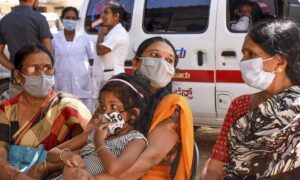Tel Aviv [Israel]: A staggering majority of Israeli farmers across the country are dealing with significant agricultural damage in various due to the war in Gaza and tensions along the Lebanese border, a survey released on Thursday found.
A survey of 389 farmers conducted by the MIGAL Galilee Research Institute found that 89 per cent of Israeli farmers have experienced some form of damage, and 96 per cent expect more during the next three months. While farmers in the Gaza and Northern regions have had the greatest disruption, all areas have been severely affected, and the impact is expected to continue for months to come.
“The response to our questions confirmed what we suspected: the Gaza War is having a devastating impact on Israeli agriculture,” said Adam Abramson, a research group leader in the field of agricultural economics at MIGAL and the survey’s initiator.
“The industry’s ability to recover will depend on our ability to implement creative solutions that assure a steady workforce, that open new marketing channels and that secure daily access to the farms themselves,” Abramson warned.
Nearly three-quarters of the farmers, 72 per cent, said they have experienced disruptions to their workforce, even in areas not near Gaza or the Lebanese border, such as central Israel or the Jordan Valley.
The pool of available workers has shrunk as foreign workers returned home while many Israelis who might have filled the labor gap have instead been mobilized for reserve military service.
Access to fields was another problem cited by farmers with 23 per cent saying they couldn’t reach their fields to plant, pick crops or do routine fertilizing or irrigation work, or damage control.
Those farmers were primarily near the Gaza and Lebanese borders.
When asked to estimate their expected losses, farmers on average predicted a 35 per cent drop in both production and revenue. But farmers near the Gaza border — regarded as Israel’s breadbasket — projected on average a 70 per cent loss of produce and 69 per cent loss of income.
In response to questions about solutions, farmers suggested bringing more foreign workers from more countries besides Thailand, providing more incentives and training to encourage a larger cross-section of Israelis to work in agriculture, and organizing security to give farmers better access their fields and orchards


























